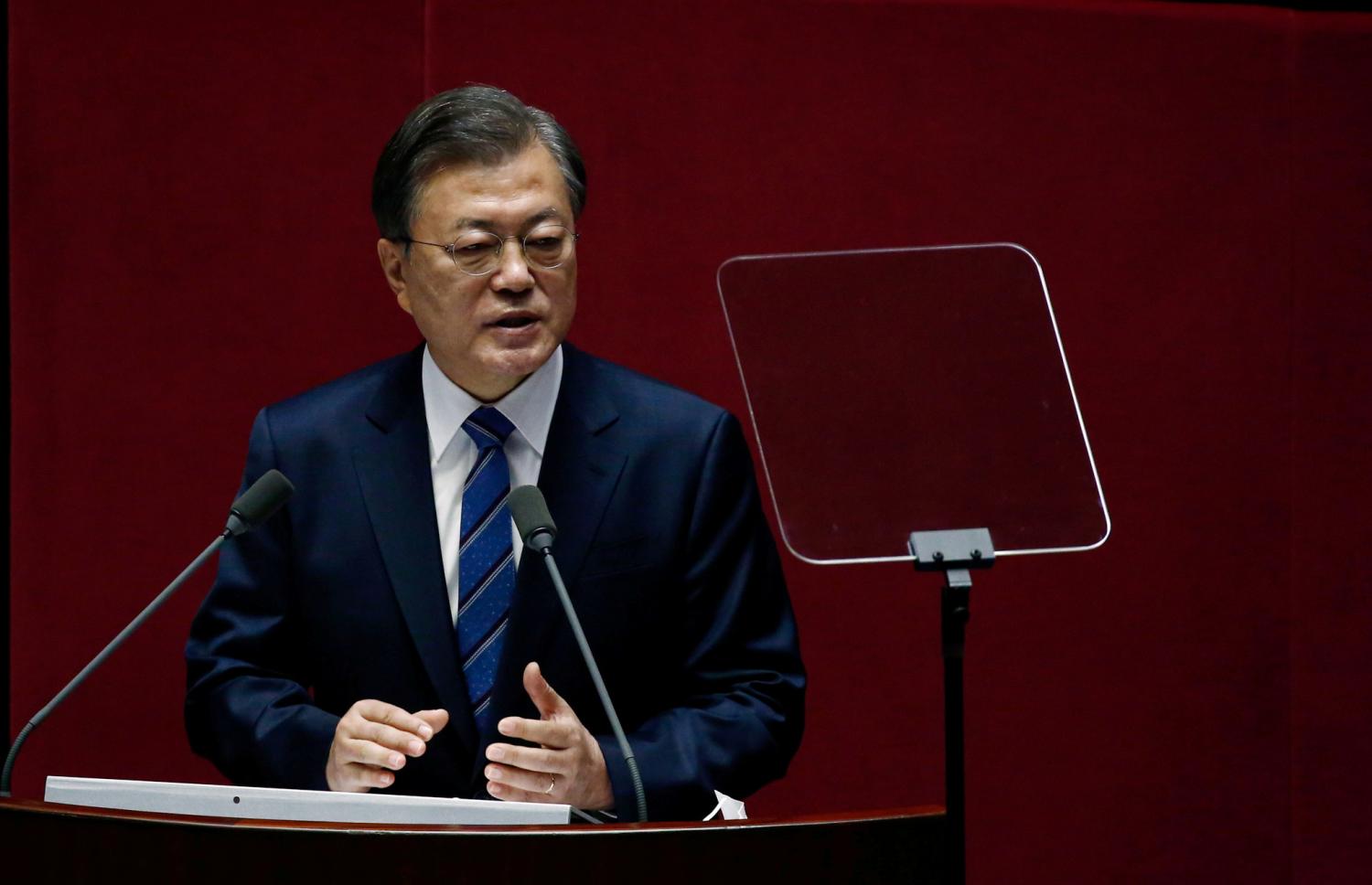This piece was originally published by the East Asia Institute (EAI) as part of a project with the Center for East Asia Policy Studies (CEAP) at Brookings examining prospects for U.S.-South Korea cooperation in an era of U.S.-China strategic competition. A webinar was hosted by CEAP and EAI on November 13, 2020 to discuss the issues presented in this and other project working papers.
Executive Summary
In late October 2020, South Korean President Moon Jae-In announced that his country would become net “carbon-neutral” by 2050. His vow came two days after a similar promise from Japan, a month after one from China, and a year after one from the European Union. South Korea, Moon promised, would work “with the international community” to achieve its ecological goal.
That won’t be easy, because Moon’s government continues to work with the international community in the opposite direction. South Korea is, by at least one count, the world’s third-largest exporter of technology to build coal-fired power plants in emerging economies. Seoul’s soul lies with coal. So does much of the world’s, which is why the tussle in South Korea epitomizes a fight engulfing the planet. At issue is how fully and quickly industrialized nations should pull back from coal and push into cleaner technologies including renewable sources such as solar and wind power – not just at home, but, far more importantly for the planet, in their marketing and financing of energy infrastructure in developing nations. Those nations are the ones where energy demand, and thus carbon emissions, are growing fastest, which means they are the places in which the slog to slash carbon emissions deeply enough that the world avoids the most dangerous effects of climate change will be won or lost. The bid to shift development in emerging economies onto this radically lower-carbon path will have massive economic, environmental, and geopolitical repercussions both for them and for the countries whose industries have for decades been supplying them.
A pullback from coal-technology financing in emerging economies, if done intelligently, need neither upend the global balance of power nor unleash mass unemployment. Which industrialized powers would win and lose from coal’s decline and renewables’ rise will depend on which governments act most strategically, taking realistic stock of their national strengths in the energy transition and then structuring their policies — from research and development, to manufacturing, to deployment — to exploit their comparative advantages.




